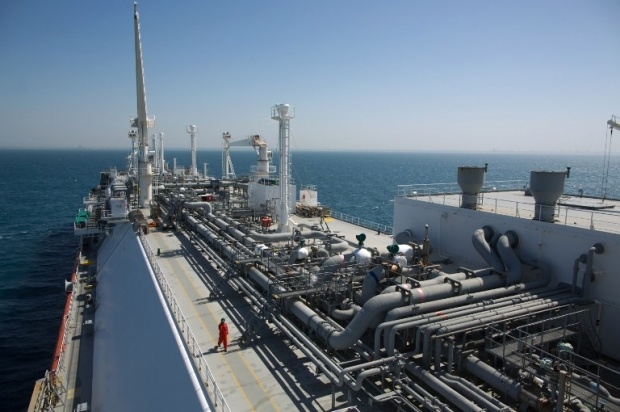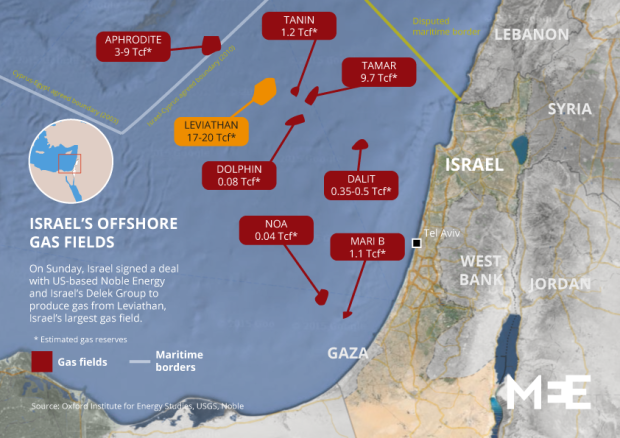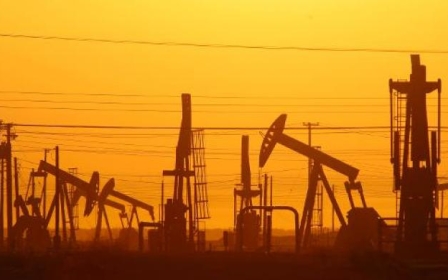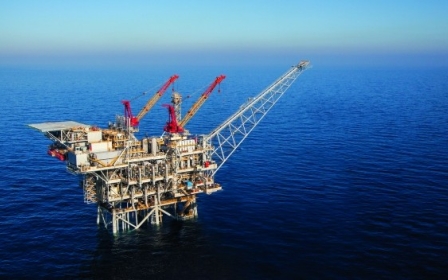Israel signs landmark natural gas deal

Israel signed a major deal with a consortium of gas companies - including the US firm Noble Energy - on natural offshore gas production in the Mediterranean, the prime minister's office said on Sunday.
The agreement is expected to face a parliamentary vote and aims to end months of uncertainty by setting a framework for the exploitation of gas discoveries.
The exploration and exploitation of natural gas in the Mediterranean could raise major new government revenues and provide Israel with strategic leverage as a regional exporter.
"This money will benefit education, health, social welfare and other national needs," Prime Minister Benjamin Netanyahu said ahead of the cabinet vote, which passed 17-1.
The negotiations surrounding the deal have been highly controversial, with critics fearing it overly favours the companies involved.Environmental Protection Minister Avi Gabbay voted against the deal. The ministers of finance, construction and social services chose not to vote as a result of a conflict of interest.
Israel's anti-trust authority has repeatedly objected to the deal on the grounds that it does not allow for sufficient competition.
To circumvent that obstacle, Netanyahu's inner cabinet in June declared gas production to be related to national security, thus allowing the government to override laws related to monopolies.
Arye Dery, Israel’s minister of the economy, supported the deal but refused to comment on whether he plans to employ a section of the country’s anti-trust law that gives him the ability to overrule the decision and declare the consortium a cartel.
Noble Energy and Delek – an Israeli-owned natural gas company - have also teamed up to develop Leviathan field, the largest undeveloped offshore field in the Mediterranean.
The consortium has committed to invest $1.5bn to develop the Leviathan field over the next two years.
The agreement contains amendments to an earlier version that links the price of gas to an energy index, hoping to lower costs for consumers.
Israel has agreed to keep the same fiscal and regulatory rules related to the gas industry for a decade as long as the consortium abides by its commitments.
Netanyahu has pushed hard to speed up gas production in the Mediterranean, drawing criticism from political opponents who accuse him of not ensuring sufficient benefits for the Israeli public in the negotiations.
"The true interests of the state of Israel require the approval of this outline as quickly as possible," he said on Sunday, while declaring he was "not impressed by populism".
New MEE newsletter: Jerusalem Dispatch
Sign up to get the latest insights and analysis on Israel-Palestine, alongside Turkey Unpacked and other MEE newsletters
Middle East Eye delivers independent and unrivalled coverage and analysis of the Middle East, North Africa and beyond. To learn more about republishing this content and the associated fees, please fill out this form. More about MEE can be found here.





